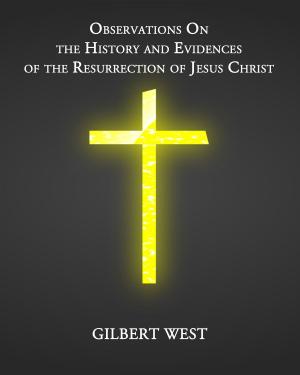God's Perfect Will
Nonfiction, Religion & Spirituality, Christianity, Christian Sermons, Christian Literature, Christian Life| Author: | G. Campbell Morgan | ISBN: | 1230001998955 |
| Publisher: | CrossReach Publications | Publication: | November 10, 2017 |
| Imprint: | Language: | English |
| Author: | G. Campbell Morgan |
| ISBN: | 1230001998955 |
| Publisher: | CrossReach Publications |
| Publication: | November 10, 2017 |
| Imprint: | |
| Language: | English |
There is no phrase more often in use in Christian thought and speech than that of “The Will of God.” It constantly recurs in our reading of Scripture; our hymns are very many of them concerned with it; and in prayer we give utterance to it again and again.
This familiarity has in some measure robbed us of a keen sense of its vital importance. Its meaning is all too little realized. In common with many of the most sacred things, it has largely become a kind of fetish that is worshipped because it has a sound of piety; while the fact that it is the supreme subject of revelation, and the one and only abiding law of life, is forgotten. Notions that are false in themselves, and, therefore, pernicious in their effects, are held concerning it. These are not the result of thought, but rather of the lack of thought. There are many who imagine that the Will of God is something apart from human interests, to which men are to be resigned whenever they happen to be brought into contact with it. Frances Ridley Havergal said that “there is always a sigh of regret in resignation.” This is perfectly true; and that conception of the Will of God which looks upon it as a Divine interference to which we are to be resigned, is evil in its effects. How many there are who only think of their relation to the Will of God in times of sorrow and trial. They are perfectly sincere, therefore, when they sing -
There is no phrase more often in use in Christian thought and speech than that of “The Will of God.” It constantly recurs in our reading of Scripture; our hymns are very many of them concerned with it; and in prayer we give utterance to it again and again.
This familiarity has in some measure robbed us of a keen sense of its vital importance. Its meaning is all too little realized. In common with many of the most sacred things, it has largely become a kind of fetish that is worshipped because it has a sound of piety; while the fact that it is the supreme subject of revelation, and the one and only abiding law of life, is forgotten. Notions that are false in themselves, and, therefore, pernicious in their effects, are held concerning it. These are not the result of thought, but rather of the lack of thought. There are many who imagine that the Will of God is something apart from human interests, to which men are to be resigned whenever they happen to be brought into contact with it. Frances Ridley Havergal said that “there is always a sigh of regret in resignation.” This is perfectly true; and that conception of the Will of God which looks upon it as a Divine interference to which we are to be resigned, is evil in its effects. How many there are who only think of their relation to the Will of God in times of sorrow and trial. They are perfectly sincere, therefore, when they sing -















